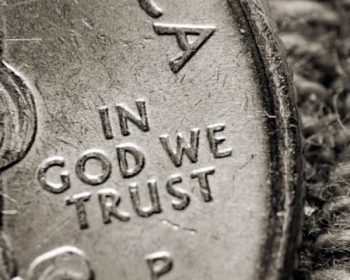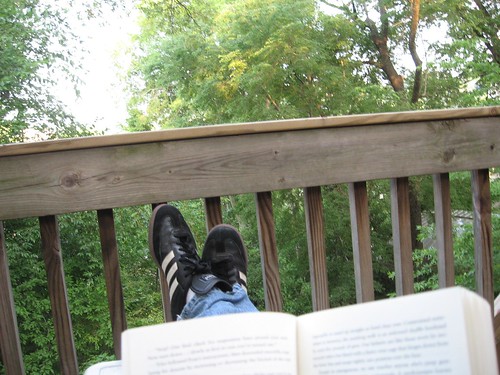 The Ordinary World: I think most people would agree that Janie's Ordinary World is her life with Nanny where she knows nothing but her small town.
The Ordinary World: I think most people would agree that Janie's Ordinary World is her life with Nanny where she knows nothing but her small town.The Call to Adventure: Like we talked about in class, I believe that Janie's Call occurs when she feels the stirrings under the pear tree. On page 10, it says, "It followed her through all her waking moments and caressed her in her sleep. It connected itself with other vaguely felt matters that had struck her outside observation and buried themselves in her flesh. Now they emerged and quested about her consciousness." This is what convinced me that the pear tree is Janie's Herald and this is her call to adventure. This description evokes the image of something within Janie fighting to the surface where she can't ignore it any more, such that it was with her both waking and sleeping. They have "buried themselves in her flesh" and so the Call becomes a part of her being that she cannot suppress. Also I thought it was ironic that this section uses the actual word 'quest' (which I italicized).
Refusal of the Call: When Janie married Logan Killicks, she is refusing the call because she decides that the safety and prerogative he can bring her with his land and money is stronger that her desire, thus giving into the 'fears or insecurities' mentioned in the description of the refusal. Nanny is the main cause for this refusal because of her role as the Shapeshifter.
Meeting the Mentor: At the moment she meets him, I think Joe Starks is somewhat a Mentor. More in that he brings back the sense of wonder within Janie that was inspired by the pear tree and the original call. The real mentor for Janie is "an inner force such as a code", which for Janie is her strength and desire for independence and love. But I still include Joe in this section because his marriage offer is what triggers the arrival of Janie's inner Mentor.
Crossing the Threshold: Janie's threshold is clearly when she gets into the carriage with Joe, hoping to find the true love and satisfaction that she never had with Logan, and marries him, thus unable to return to Logan both personally and legally.
Tests, Allies, and Enemies: Janie has many tests, but I viewed this part of her journey as a regression back to the way she was in her Ordinary World. When in Eatonville, she loses her spirit and drive due to Joe's suppression of her. Janie "learns who can be trusted" in this stage as she finds her "bosom friend" Pheoby. At Joe's death, and the end of this stage, Janie is able to "test her skills and powers" as she remonstrates him for not knowing who she was as a person and for hiding it.
Approach to the Inmost Cave: This stage is completely related to Tea Cake, in my opinion. I see his character as a Trickster in the way he completely disrupts Eatonville, allows Janie to laugh and be happy, and is with her for the rest of the novel. Janie has just "survived her descent into the Special World" as she becomes self-sufficient after Joe's death and refuses every man who tried to marry her. Then when she meets Tea Cake, Janie is able to grow internally and, when she leaves Eatonville to marry him, Janie moves closer to her Ordeal.
The Ordeal: Janie's Ordeal is the night when Tea Cake has seemingly run off with her money and Janie is all alone without anyone for comfort and feels surrounded by the many caveats that Tea Cake was only with her for her money. During this night, Janie faces "her greatest fear" in being used for nothing but her money. She loves Tea Cake at this point, and the idea that Tea Cake abused her trust is devastating. But also this night gives Janie the characterized "greater powers or insight" when she realizes that Tea Cake might be imperfect, but he is not abusing her love and she can trust him to try and treat her well.
Reward: Janie's reward is the time her spends with Tea Cake on the muck. During this part of the novel, there is next to no strife - excepting the fleeting jealousies between Tea Cake and herself - and Janie comes even more into her independence and self-assurance as she learns to hunt, performers physical labor as she never has been allowed to before, and speaks out amongst the new porch sitters instead of allowing them to talk around her, but not with her, as she did in Eatonville.
The Road Back: This, I felt, occurred explicitly during the hurricane. Janie and Tea Cake are forced back into the more harsh lifestyle of the cities in order to escape the flood of the lake, which is the "event that pushes her back". Janie accepts this road back as she takes Tea Cake's advice that they shouldn't stay in the cabin because it will be washed away. Also, after this point Tea Cake becomes sick and Janie is forced out of her simple life on the muck where it appears that Tea Cake is invincible and nothing can destroy her happiness.
The Resurrection: Described as "the Hero's most dangerous meeting with death", Janie's resurrection begins when she faces down Tea Cake while he points a gun at her after getting mad dog. This is the physical Ordeal that is mentioned, and once it is over, Janie having shot Tea Cake, she is reborn and clearly "accepts her sacrifice for the benefit of the Ordinary World." Janie sacrifices her love and companion, Tea Cake, because his mad dog could easily infect a large number of people on the muck and so she chooses to end his life and take the personal pain that comes from being without him in exchange for protecting their society. In this manner Janie achieves her Heroic Status as well.
Return with the Elixir: Finally, Janie return with the elixir is clearly shown as she comes back to Eatonville and "shares the Elixir of the Journey with others" as she tells Pheoby her tale in order to show Pheoby the vastness of her internal growth and inspire Pheoby in her own life.





































